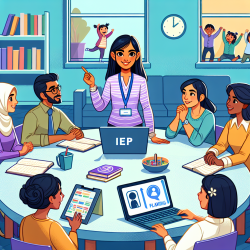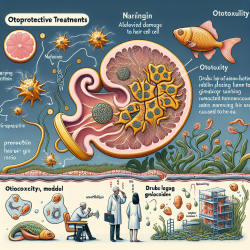Introduction
In the ever-evolving landscape of healthcare, understanding the multifaceted impacts of the COVID-19 pandemic is crucial, especially when it comes to the well-being of healthcare workers. A recent study, "Machine learning-based analytics of the impact of the Covid-19 pandemic on alcohol consumption habit changes among United States healthcare workers," sheds light on how the pandemic has influenced alcohol consumption patterns among healthcare professionals. This research not only provides valuable insights into the stressors faced by healthcare workers but also offers a data-driven approach to addressing these challenges. By leveraging machine learning techniques, we can better understand the predictors of increased alcohol consumption and develop targeted interventions to support healthcare workers and, by extension, the children they care for.
Key Findings from the Research
The study utilized a range of machine learning models, including decision trees, logistic regression, and support vector machines, to analyze survey data from healthcare workers. The findings revealed several key predictors of increased alcohol consumption during the pandemic:
- Healthcare workers with children at home were more likely to increase alcohol consumption.
- Changes in work schedules due to the pandemic were associated with altered drinking habits.
- Other significant predictors included changes in food consumption, age, gender, geographical location, sleep habits, news consumption, and screen time.
These insights highlight the complex interplay between personal, professional, and environmental factors that contribute to changes in alcohol consumption among healthcare workers.
Implications for Speech Language Pathologists
As practitioners dedicated to improving outcomes for children, speech language pathologists can draw several important lessons from this research:
- Understanding the Context: Recognizing the stressors faced by healthcare workers, including those related to parenting and work-life balance, can inform more empathetic and effective therapeutic interventions for children and their families.
- Data-Driven Interventions: By leveraging machine learning insights, practitioners can develop targeted strategies to support children whose caregivers may be experiencing increased stress and alcohol consumption. This could include family-centered approaches that address the broader context of a child's environment.
- Promoting Resilience: Encouraging resilience-building activities and coping strategies can help mitigate the negative impacts of stress on both children and their caregivers. This includes fostering open communication, emotional regulation, and healthy lifestyle choices.
Encouraging Further Research
The findings from this study underscore the need for continued research into the impacts of the COVID-19 pandemic on healthcare workers and their families. Speech language pathologists are encouraged to explore the following areas:
- Investigating the long-term effects of pandemic-related stressors on child development and family dynamics.
- Exploring the role of teletherapy and other remote interventions in supporting families during times of crisis.
- Collaborating with interdisciplinary teams to develop comprehensive support systems for healthcare workers and their children.
Conclusion
By integrating the insights from machine learning-based research into their practice, speech language pathologists can enhance their ability to support children and families in navigating the challenges posed by the COVID-19 pandemic. This data-driven approach not only empowers practitioners to make informed decisions but also fosters a more resilient and supportive environment for children to thrive.
To read the original research paper, please follow this link: Machine learning-based analytics of the impact of the Covid-19 pandemic on alcohol consumption habit changes among United States healthcare workers.










